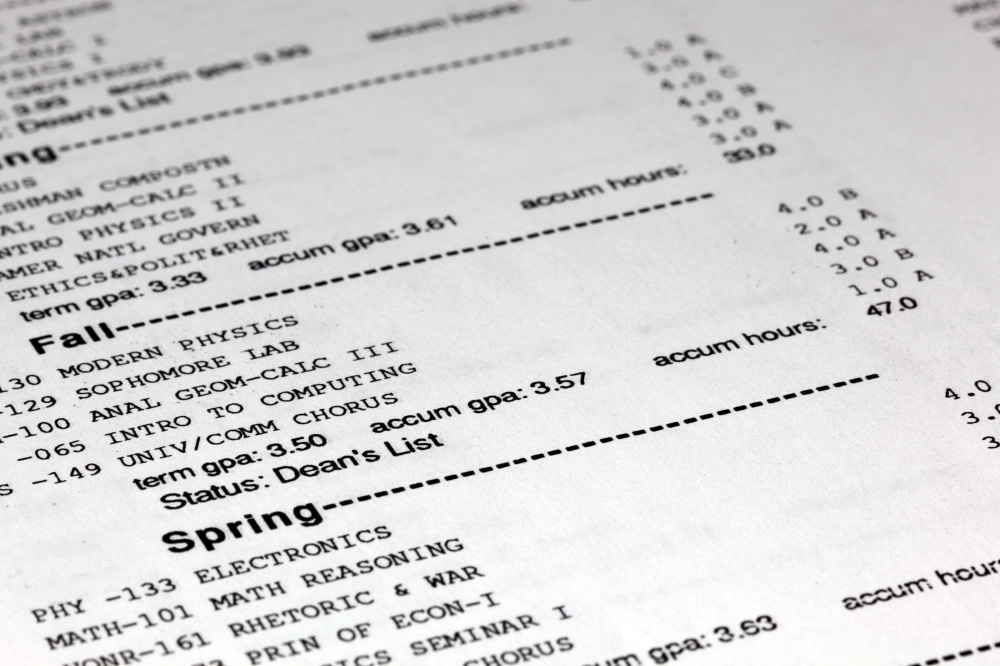尽管美国经济开始复苏,但疫情的打击仍会长期存在。2020 年,美国GDP下降了3.5%,虽然据预计,今年的GDP将恢复增长,但在未来的两年内,大流行给GDP带来的损失预计仍将有3.2至4.8万亿美元。
美国的经济复苏将以其强大的创造力和人才储备为基础——尤其是美国年轻人的潜力。现在正在大学校园里的这一代人终将重新审视这个世界,以全新的眼光看待以往的旧问题。明日的繁荣有赖于创新,而这正是这一代人提供的。
然而,不幸的是,一些大学的现行政策阻碍了毕业生的职业发展,迫使他们不得不从事低薪工作,而且阻碍了这些学生——或他们的国家——从多年的寒窗苦读中受益。而且,但凡这些毕业生能够找到薪水更高的工作,他们就能够还清债务。

在许多州,大学正在强制要求扣押尚未还清债务的毕业生的成绩单——而这些债务通常只是微不足道的一点钱。这些政策可能会影响美国约660万学生,阻碍他们职业生涯的起点,并可能给他们带来终身的影响。
今年的本科生入学率下降了4.4%,疫情使美国许多大学面临严重的财务压力。据预计,即使是亚利桑那大学这样享有盛誉的州立学府,也将损失2.5亿美元的收入,总体而言,估计20%的文理学院(约200所)可能会倒闭。
大学急于填平他们的账单是可以理解的。但扣留成绩单的做法最终会伤害到所有与之相关的人:毕业生、他们的大学,以及更广泛的社会经济。
大学不必免除学生们的债务。但是,考虑到学生们经历的这糟糕一年,如果高校能停止这种不近人情的做法,表现出对苦苦挣扎的学生们的仁慈体谅,这将是多么美好的一幕。当 37% 的美国大学生在去年连饭都吃不起,近三分之一的人因疫情被解雇时,高校还指望学生们在毕业之前偿还所有剩余债务是不现实的。
美国的经济社会也要对此付出沉重的代价——可以说是毁灭性的机会成本。此时,我们应该抓住每一个机会来推动经济的复苏。根据一项研究,在过去十年中,本科毕业生人数只要每增长1%,就会使美国的GDP增加1300亿美元。
在当下社会,有能力的毕业生正处于短缺状态,这也就意味着大学扣下他们的成绩单的时候,正是经济的至暗时刻。在美国,只有37%的人拥有学士学位或更高的学历——对一个日益以服务和技术为中心的经济体来说,这实在是太少了。
扣留成绩单是高等教育在学费、学生债务等方面出现更大危机的征兆。目前,仅美国就有300 万人背负着超过100,000美元的学生债务,全国学生债务总额现在达到1.7万亿美元——这是仅次于房贷的第二大消费债务。超过三分之一的美国学生认为,他们永远都还不清。
虽然这个问题亟需解决,但它需要的是结构性、系统性的补救措施,而不是单边制裁。美国的一些州,包括华盛顿州和加利福尼亚州,已经通过相关法案,禁止学校扣留学生成绩单。但在这方面维护社会公正最简单的方法是制定联邦法律,禁止这类措施。
扣留成绩单,就是扣留年轻人为经济注入活力的命脉——现在绝非能这样做的时候。历史会善待那些明事理的大学——他们知道无论经济压力如何、都不能失去大学生的贡献。过去的一年已把这一代人的希望、计划和梦想无限推迟,再为他们设置更多障碍,似乎太不公平。(财富中文网)
作者Dan Rosensweig系教育网站Chegg的首席执行官兼总裁。
编译:陈聪聪
尽管美国经济开始复苏,但疫情的打击仍会长期存在。2020 年,美国GDP下降了3.5%,虽然据预计,今年的GDP将恢复增长,但在未来的两年内,大流行给GDP带来的损失预计仍将有3.2至4.8万亿美元。
美国的经济复苏将以其强大的创造力和人才储备为基础——尤其是美国年轻人的潜力。现在正在大学校园里的这一代人终将重新审视这个世界,以全新的眼光看待以往的旧问题。明日的繁荣有赖于创新,而这正是这一代人提供的。
然而,不幸的是,一些大学的现行政策阻碍了毕业生的职业发展,迫使他们不得不从事低薪工作,而且阻碍了这些学生——或他们的国家——从多年的寒窗苦读中受益。而且,但凡这些毕业生能够找到薪水更高的工作,他们就能够还清债务。
在许多州,大学正在强制要求扣押尚未还清债务的毕业生的成绩单——而这些债务通常只是微不足道的一点钱。这些政策可能会影响美国约660万学生,阻碍他们职业生涯的起点,并可能给他们带来终身的影响。
今年的本科生入学率下降了4.4%,疫情使美国许多大学面临严重的财务压力。据预计,即使是亚利桑那大学这样享有盛誉的州立学府,也将损失2.5亿美元的收入,总体而言,估计20%的文理学院(约200所)可能会倒闭。
大学急于填平他们的账单是可以理解的。但扣留成绩单的做法最终会伤害到所有与之相关的人:毕业生、他们的大学,以及更广泛的社会经济。
大学不必免除学生们的债务。但是,考虑到学生们经历的这糟糕一年,如果高校能停止这种不近人情的做法,表现出对苦苦挣扎的学生们的仁慈体谅,这将是多么美好的一幕。当 37% 的美国大学生在去年连饭都吃不起,近三分之一的人因疫情被解雇时,高校还指望学生们在毕业之前偿还所有剩余债务是不现实的。
美国的经济社会也要对此付出沉重的代价——可以说是毁灭性的机会成本。此时,我们应该抓住每一个机会来推动经济的复苏。根据一项研究,在过去十年中,本科毕业生人数只要每增长1%,就会使美国的GDP增加1300亿美元。
在当下社会,有能力的毕业生正处于短缺状态,这也就意味着大学扣下他们的成绩单的时候,正是经济的至暗时刻。在美国,只有37%的人拥有学士学位或更高的学历——对一个日益以服务和技术为中心的经济体来说,这实在是太少了。
扣留成绩单是高等教育在学费、学生债务等方面出现更大危机的征兆。目前,仅美国就有300 万人背负着超过100,000美元的学生债务,全国学生债务总额现在达到1.7万亿美元——这是仅次于房贷的第二大消费债务。超过三分之一的美国学生认为,他们永远都还不清。
虽然这个问题亟需解决,但它需要的是结构性、系统性的补救措施,而不是单边制裁。美国的一些州,包括华盛顿州和加利福尼亚州,已经通过相关法案,禁止学校扣留学生成绩单。但在这方面维护社会公正最简单的方法是制定联邦法律,禁止这类措施。
扣留成绩单,就是扣留年轻人为经济注入活力的命脉——现在绝非能这样做的时候。历史会善待那些明事理的大学——他们知道无论经济压力如何、都不能失去大学生的贡献。过去的一年已把这一代人的希望、计划和梦想无限推迟,再为他们设置更多障碍,似乎太不公平。(财富中文网)
作者Dan Rosensweig系教育网站Chegg的首席执行官兼总裁。
编译:陈聪聪
Although the U.S. economy is beginning to bounce back, we will be dealing with the blow struck by COVID-19 for a long time. During 2020, U.S. GDP fell by 3.5%, and although growth is predicted to return this year, the pandemic could still result in an estimated $3.2 to $4.8 trillion GDP loss over the next two years.
Our country’s economic recovery will depend on harnessing its deep natural reserves of creativity and talent—especially the potential of our young people. It is the generation now at college who will ultimately rethink the world, come to old problems with fresh eyes, and create the innovations on which tomorrow’s prosperity will depend.
Unfortunately, however, some universities are pursuing policies that are putting the brakes on the careers of graduates, forcing them into low-paid jobs that don’t allow them—or their country—to benefit from their years of hard study. And, if these same graduates were able to get better-paying jobs, they'd be able to pay off their debt.
In many states, colleges are enforcing the practice of withholding the transcripts of graduates who have any remaining debt to the college—often for marginal amounts. These policies may be affecting around 6.6 million students in the U.S., hampering them at the starting gate of their careers and potentially affecting them for life.
With undergraduate enrollments down 4.4% this year, COVID-19 has put many American universities under severe financial pressure. Even prestigious statewide institutions such as the University of Arizona are projecting a $250 million revenue loss, and overall, it is estimated that 20% of liberal arts colleges (around 200 institutions) could go out of business.
It’s understandable that universities are anxious to balance their books. But the practice of withholding transcripts ultimately harms everyone involved: graduates, their universities, and the wider economy.
Colleges don’t have to forgive the debt. But, given the awful year students have gone through, what a wonderful time it would be for colleges to show some sensitivity to the student struggle by stopping this terrible practice. When 37% of U.S. college students struggled to afford food over the last year, and nearly one-third were laid off from their jobs due to the pandemic, it is simply unrealistic for universities to expect all remaining debt to be paid before graduates have begun earning.
The opportunity cost for the U.S. economy and society is devastating, at a time we should be using every opportunity to fuel our recovery. According to one study, a growth of just 1% in the number of bachelor’s graduates over the last decade would have boosted U.S. GDP by $130 billion.
And the existing shortage of skilled graduates means we are withholding transcripts at a time when the economy can least cope with it. In the U.S., just 37% of people have a bachelor’s degree or higher qualification—far too few for an increasingly services- and tech-focused economy.
Withholding transcripts is symptomatic of the wider crisis in higher education around tuition and student debt. Currently, 3 million people in the U.S. owe more than $100,000 in student debt alone, and total student debt nationally is now at $1.7 trillion—the second largest form of consumer debt behind mortgages. Over a third of U.S. students don’t believe they’ll ever pay theirs off.
While this problem cries out for solutions, they need to be structural, systemwide remedies rather than unilateral sanctions. Some states, including Washington and California, have passed laws that ban transcript withholding. But the simplest way to restore fairness is to enact a federal law prohibiting these measures.
Now is not the time to withhold the lifeblood that young people can bring to the economy. History will look kindly on those colleges that understand, whatever the financial pressures, that we can’t afford to lose the contributions of college students. And it seems particularly unfair to place further barriers in front of a generation that, over the last year, has already seen its hopes, plans, and dreams indefinitely deferred.
Dan Rosensweig is the CEO and president of Chegg.






